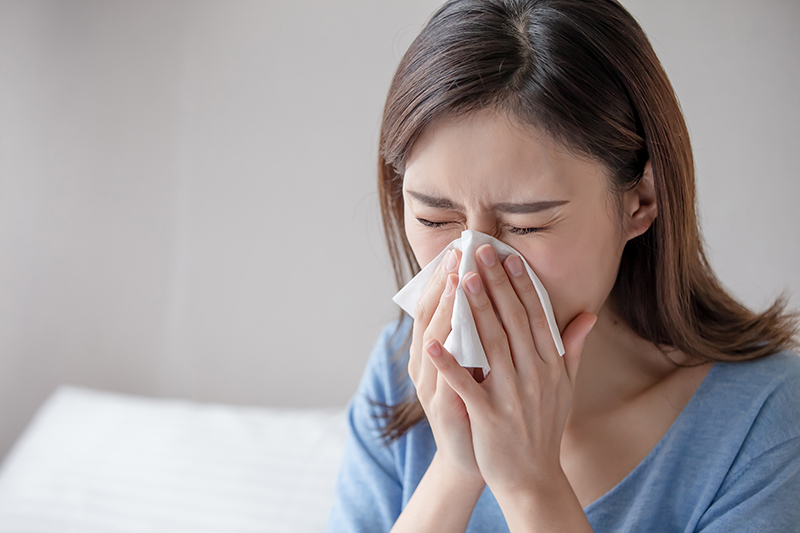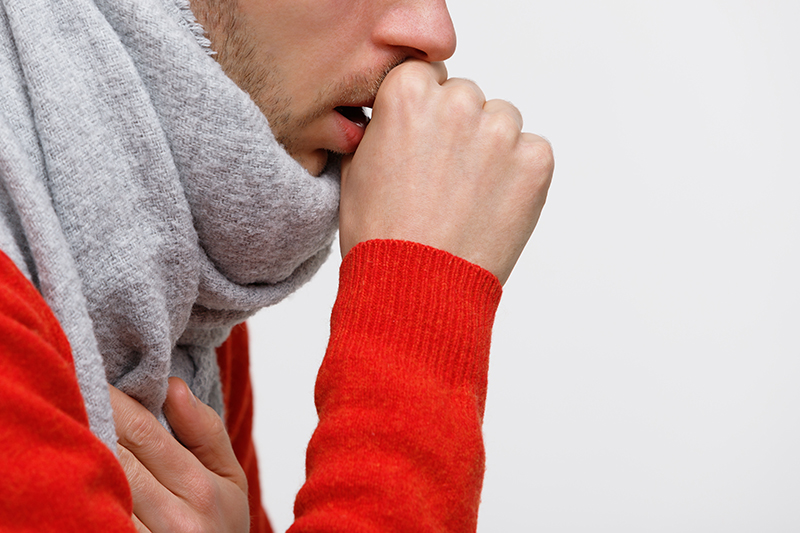
Allergies are caused by your immune system reacting to a foreign substance such as pollen, dust, mold or dander (flakes of skin from certain animals), or certain foods.
Allergies can cause inflammation in your sinuses, nasal passages, airways, and lungs – all of which are parts of your respiratory system. This inflammation can result in:

Allergies can trigger an asthma attack (allergy-induced asthma). Asthma is a condition in which the airways swell and produce extra mucus, causing difficulty in breathing, coughing, wheezing and chest tightness, among others.

Individuals with allergies are also at higher risk for respiratory infections such as bronchitis, as well as hypersensitivity pneumonitis, a type of allergic reaction that causes inflammation of the lung’s air sacs.
Talk to your doctor for more information on allergy prevention and management.
Shop at Watsons for prescription medications and other essential healthcare needs.
References: https://acaai.org/allergies/allergy-symptoms/wheezing-shortness-breath. Accessed 08 August 2021 https://virtualimagingatl.com/2018/03/27/how-allergies-affect-your-lungs/. Accessed 08 August 2021 https://www.mayoclinic.org/diseases-conditions/allergies/symptoms-causes/syc-20351497. Accessed 08 August 2021
Cerebrovascular diseases, which include stroke or brain attack, are the third leading cause of death in the country in 2022 […]
Blood pressure (BP) is the pressure exerted by the blood as it pushes against the walls of our arteries, which […]
Overweight and obesity are defined as abnormal or excessive fat accumulation that presents a risk to health. A body mass […]